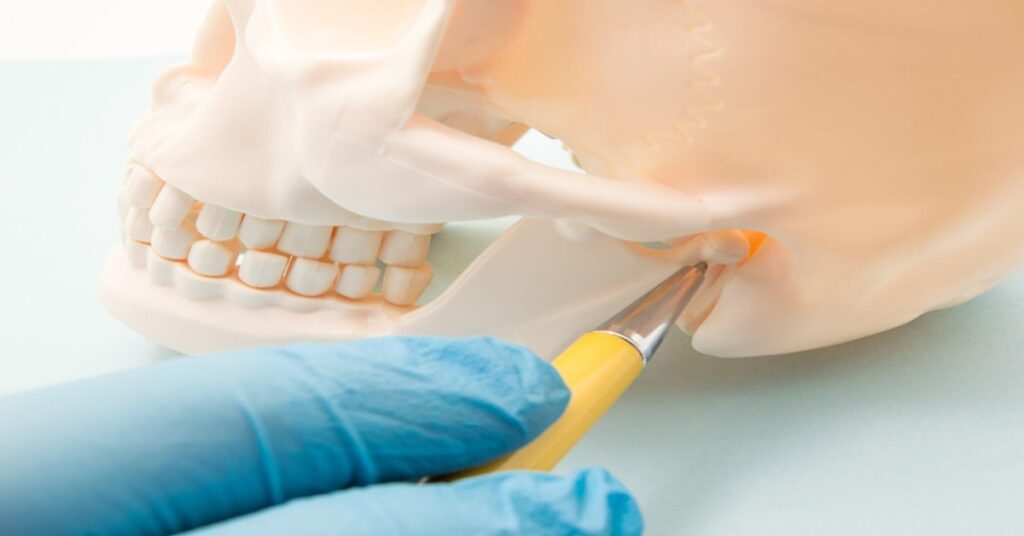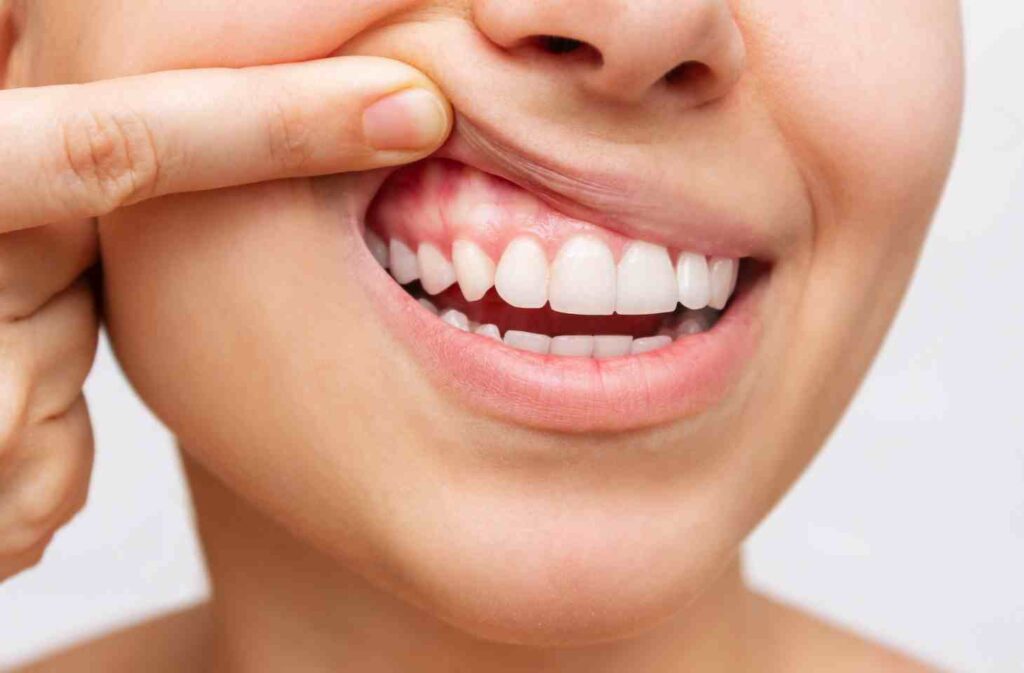Do you find yourself wincing at the mere thought of biting into a juicy apple or enjoying a hearty laugh with friends?If you’re nodding in agreement, your temporomandibular joint (TMJ) might be sending distress signals that can’t be ignored. But before you blame your jaw for its rebellious behavior, take a moment to consider the suspects lurking in your daily routine.
Read on to learn about things that make TMJ worse.
1. Chewing Gum
Chewing gum involves moving your jaw over and over, which can increase stress on the temporomandibular joint. The constant motion and pressure on this joint can contribute to the overuse of the muscles involved, potentially leading to pain, stiffness, and discomfort.
Individuals with TMJ pain may already have heightened sensitivity in the jaw area, and the additional strain from chewing gum can intensify these symptoms.Many gums contain artificial sweeteners and additives that require prolonged chewing to extract the flavor.
Extended periods of chewing can lead to muscle fatigue and strain in the jaw, further aggravating TMJ pain. The act of chewing gum may also encourage unconscious habits like clenching or grinding the teeth, which are common triggers for TMJ-related issues.
2. Hard Food
Chewing on hard and crunchy items, such as nuts, raw vegetables, or tough meats, can cause excessive strain on the jaw muscles.The repeated and forceful motions required for chewing hard foods can exacerbate TMJ sensitivity, potentially leading to increased pain and decreased jaw function.
3. Resting on Your Chin
When a person rests their chin on their hand or another surface, it often involves compressing the temporomandibular joint. This compression can lead to increased stress on the joint, potentially causing inflammation and aggravating TMJ pain.
4. Bad Posture
Spine and neck alignment plays a crucial role in overall TMJ health, and bad posture can negatively impact this delicate balance.Forward head posture, where the head is positioned forward of the shoulders, can strain the neck and jaw muscles.
Ergonomic adjustments to workstations and daily activities can reduce the strain on the temporomandibular joint. Stretching and trying strengthening exercises for the neck and back can help improve posture and alleviate tension in the jaw area.
5. Waiting for Help
If you’re struggling with your jaw, you’ll want TMJ treatment as soon as possible.Without appropriate intervention, individuals may inadvertently engage in habits that exacerbate the condition, such as clenching or grinding their teeth due to unmanaged stress.
Waiting for help may result in missed opportunities to identify and address the underlying causes of TMJ problems. Early intervention by healthcare professionals or specialists allows for a comprehensive assessment of the individual’s condition.
This can help them create a personalized TMJ treatment plan that may include lifestyle changes, exercises, and, if necessary, therapeutic interventions.
Related Articles:
The Comprehensive Guide to Dental Emergencies
Things That Make TMJ Worse: Avoid These Today
Now that you know these things that make TMJ worse, you’ll be able to keep yourself healthier. Consult with a doctor and see what other changes you might need to make to make sure you’re in top shape!Are you searching for more tips for living your best life? Make sure you read through some of our other useful posts.






